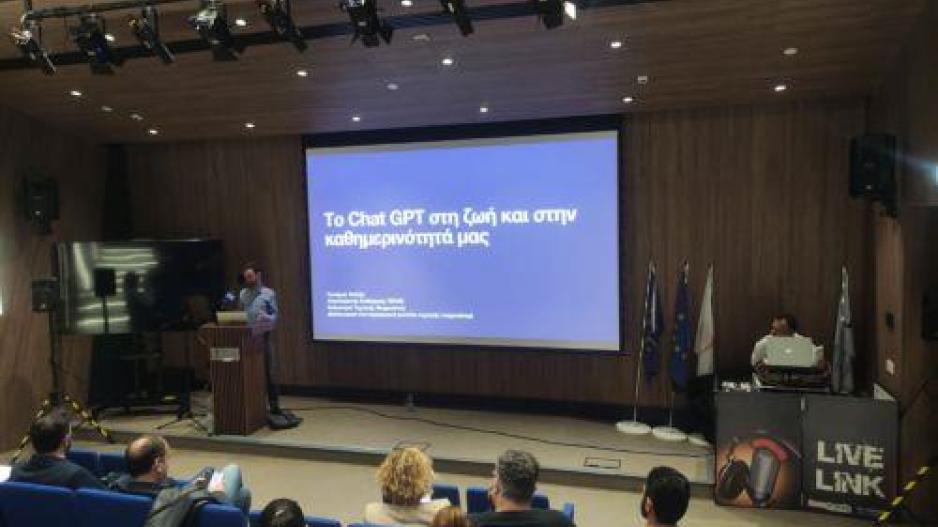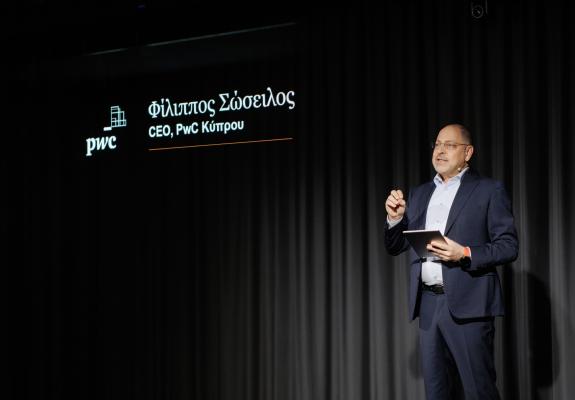TEPAK's Second Lecture in Paphos on AI and Its Impact
Exploring the Frontiers of Artificial Intelligence and Legal Considerations in Music
Yesterday, Wednesday, the Cyprus University of Technology (TEPAK) conducted its second lecture in Paphos, focusing on Artificial Intelligence (AI), as part of the first series of open lectures organized by the University. This series coincides with the inauguration of TEPAK's School of Tourism, Hospitality, and Entrepreneurship in Paphos.
According to a press release, the lecture was attended by TEPAK's Rector, Professor Panagiotis Zafeiris, the President of the Council, Dr. Christos Chomatadas, council member Stefania Floraki, and the President of the Department of Tourism and Hospitality Management of TEPAK, Associate Professor Antonis Theocharous.
In his welcoming address, Rector Zafeiris greeted the participants of TEPAK's second lecture in Paphos, emphasizing the university's efforts to engage more closely with society, thereby disseminating scientific knowledge and promoting lifelong education on topics of public interest.
From his side, Associate Professor Antonis Theocharous discussed the recent launch of the School of Tourism, Hospitality, and Entrepreneurship in Paphos last September. He expressed gratitude and thanks to the city of Paphos for its warm reception. Dr. Theocharous announced that the new cycle of lectures would commence this coming January, covering topics that resonate with public opinion.
The speakers at the second lecture included Associate Professor Dr. Sotirios Chatzis, President of the Department of Electrical Engineering and Computer Science and Informatics at TEPAK, and Dr. Mirela Pachou, a Senior Scientific Collaborator at the Law and Informatics Laboratory of the Athens Law School.

In his speech titled "ChatGPT in our Life and Everyday Routine," Dr. Chatzis delved into Productive Artificial Intelligence and Large Language Models, noting how these technologies transform our interaction with machines and their applications across various industrial sectors. He focused particularly on Large Language Models like ChatGPT, which can understand and generate human-like text, making them highly versatile for diverse tasks. Dr. Chatzis also presented real-world examples showcasing the ease of integrating these systems into various applications without extensive programming knowledge.
Dr. Chatzis elaborated on why these technologies are revolutionary, analyzing their immense potential for task automation and the accompanying societal challenges, such as reinforcing biases and interpretability issues.
In her speech titled “ART – IFICIAL ART: Legal Considerations in the Application of Artificial Intelligence in Music,” Dr. Pachou discussed how disruptive technologies of the Fourth Industrial Revolution profoundly affect society, the economy, and daily life. She noted that AI's intrusion into the music industry brings significant changes in music creation, distribution, and consumption, and raises new, unprecedented questions regarding data protection and artists' intellectual property rights in the digital reality.
During her speech, Dr. Pachou presented general thoughts and concerns related to these issues, focusing on the protection of personal data of creators and intellectual property in works produced BY or WITH the help of AI systems.






